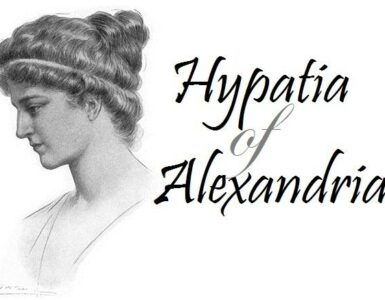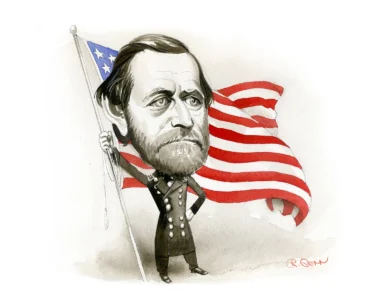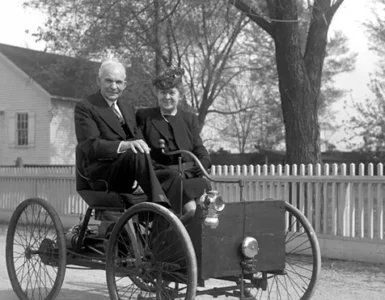Thomas Jefferson, the third President of the United States, is one of the most important figures in American history. As the principal author of the Declaration of Independence, Jefferson played a key role in the founding of the nation. His contributions as a politician, diplomat, philosopher, and writer helped shape the United States during its formative years. However, his life and legacy are also complex, marked by contradictions in his personal beliefs and his actions, particularly on issues like slavery and equality. This article explores the life of Thomas Jefferson, his role in shaping American ideals, his presidency, and the debates surrounding his legacy.
Early Life and Education
Thomas Jefferson was born on April 13, 1743, in Shadwell, in the Virginia Colony, to a wealthy family. His father, Peter Jefferson, was a successful planter and surveyor, and his mother, Jane Randolph Jefferson, came from one of the most prominent families in Virginia. Growing up on his family’s plantation, Monticello, young Thomas was exposed to the lifestyle of Virginia’s elite but was also encouraged to pursue education and self-improvement.
Jefferson received a classical education, studying subjects like Greek, Latin, philosophy, and mathematics. He attended the College of William & Mary in Williamsburg, Virginia, where he was influenced by Enlightenment thinkers and studied law under George Wythe, who became a lifelong mentor. After completing his education, Jefferson became a lawyer and developed a reputation as a skilled and articulate advocate.
Entry into Politics and the American Revolution
Jefferson’s political career began in the early 1760s when he was elected to the Virginia House of Burgesses, the colony’s legislative assembly. It was during this time that tensions between the American colonies and Great Britain were escalating. Jefferson quickly became a vocal critic of British policies, especially those that he felt infringed on the rights and liberties of the American colonists.
In 1774, Jefferson wrote a pamphlet titled “A Summary View of the Rights of British America,” which argued that the colonies had the right to govern themselves independently of the British Parliament. This work established Jefferson as a prominent thinker and advocate for American independence.
Author of the Declaration of Independence
In 1775, the Second Continental Congress convened in Philadelphia to address the growing conflict between the colonies and Britain. Jefferson was appointed as a delegate from Virginia, and in 1776, he was selected to be part of a five-member committee tasked with drafting a formal declaration of independence from Britain. Jefferson was chosen to write the first draft, which would later become the Declaration of Independence.
Jefferson’s draft, completed in just a few weeks, was a powerful and eloquent statement of the colonies’ right to self-governance and the belief in natural rights—that all men are created equal and endowed with the rights to life, liberty, and the pursuit of happiness. The document was a reflection of Enlightenment ideals, drawing on the works of philosophers like John Locke. After some revisions by the committee and Congress, the Declaration of Independence was adopted on July 4, 1776, officially proclaiming the colonies’ break from British rule.
The declaration made Jefferson a national hero and one of the most important voices of the American Revolution. It set forth principles of freedom, democracy, and human rights that would inspire not only the newly formed United States but also movements for liberty worldwide.
Role in Virginia and the American Revolution
Following the adoption of the Declaration of Independence, Jefferson returned to Virginia, where he worked to reform state laws and promote democratic principles. He was elected as the Governor of Virginia from 1779 to 1781, during the later years of the American Revolution. However, his governorship was a challenging time, marked by British invasions of Virginia, which forced Jefferson to flee the capital. His political opponents criticized his actions as governor, and he chose not to seek re-election.
Despite the challenges, Jefferson continued to be an influential figure in shaping American governance. He worked to establish religious freedom, contributing to the drafting of the Virginia Statute for Religious Freedom, which became law in 1786. This statute disestablished the Church of England as the state church and guaranteed freedom of religion, laying the groundwork for the First Amendment of the U.S. Constitution.
U.S. Minister to France and Secretary of State
After the American Revolution, Jefferson’s diplomatic skills were called upon when he was appointed as the U.S. Minister to France in 1785, succeeding Benjamin Franklin. During his time in France, Jefferson witnessed the beginnings of the French Revolution and supported its principles of liberty and equality, although he was cautious about its violent turn.
In 1790, under President George Washington, Jefferson became the first U.S. Secretary of State. In this role, he was responsible for managing the nation’s foreign affairs, and he often clashed with Alexander Hamilton, the Secretary of the Treasury. While Hamilton favored a strong central government and close ties with Britain, Jefferson advocated for states’ rights, an agrarian economy, and support for France, reflecting his Republican ideals. These differences laid the foundation for the development of the first political parties in the United States: the Federalists (led by Hamilton) and the Democratic-Republicans (led by Jefferson).
The Presidency and the Louisiana Purchase
In 1800, Thomas Jefferson was elected as the third President of the United States, defeating the incumbent, John Adams, in a highly contested election. His victory marked the first peaceful transfer of power between political parties in U.S. history, an event later called the Revolution of 1800. As president, Jefferson sought to reduce the size of the federal government, lower taxes, and promote individual liberty and states’ rights.
One of the most significant achievements of Jefferson’s presidency was the Louisiana Purchase in 1803. The United States purchased the vast territory of Louisiana from France for $15 million, effectively doubling the size of the country. The acquisition provided land for westward expansion and demonstrated Jefferson’s willingness to take bold actions, despite his previous adherence to a strict interpretation of the Constitution, which did not explicitly grant the president the power to acquire new territories.
Jefferson also commissioned the famous Lewis and Clark Expedition (1804–1806) to explore the newly acquired western territory and find a route to the Pacific Ocean. The expedition provided valuable information about the geography, resources, and Native American tribes of the West, fueling American interest in expansion.
The Embargo Act and Foreign Policy Challenges
While Jefferson’s presidency saw many successes, it was also marked by foreign policy challenges, particularly with Britain and France, who were at war and interfering with American trade. To avoid conflict and pressure the warring nations, Jefferson implemented the Embargo Act of 1807, which prohibited American ships from trading with foreign ports. However, the act had a devastating effect on the U.S. economy, especially on merchants and farmers, and was widely unpopular. It failed to achieve its goals and was eventually repealed in 1809.
Retirement and Life at Monticello
After serving two terms, Jefferson retired from the presidency in 1809, returning to his beloved estate, Monticello, in Virginia. During his retirement, he remained active in public affairs, founding the University of Virginia, which was designed to be a secular institution free from religious influence. Jefferson envisioned the university as a place of enlightenment and higher learning, and he considered its creation one of his greatest accomplishments.
Jefferson spent his later years corresponding with other Founding Fathers, including John Adams, with whom he renewed a friendship after years of political rivalry. The two engaged in a prolific exchange of letters, discussing philosophy, politics, and their shared experiences in the nation’s founding.
Slavery and the Complexity of Jefferson’s Legacy
While Jefferson is celebrated for his role in advocating liberty and democracy, his legacy is complicated by his views and actions regarding slavery. Despite writing that “all men are created equal” in the Declaration of Independence, Jefferson owned hundreds of enslaved people throughout his life. Although he expressed moral concerns about the institution of slavery and supported gradual emancipation, he never freed the majority of his own slaves, and he continued to rely on their labor to maintain Monticello.
One of the most debated aspects of Jefferson’s life is his relationship with Sally Hemings, an enslaved woman at Monticello. Historical evidence strongly suggests that Jefferson fathered several children with Hemings, who was also the half-sister of his late wife, Martha Jefferson. This relationship and Jefferson’s inability to reconcile his principles of liberty with his actions as a slave owner remain subjects of intense discussion and controversy.
Death and Legacy
Thomas Jefferson died on July 4, 1826, the 50th anniversary of the adoption of the Declaration of Independence. Coincidentally, John Adams, his friend, and fellow Founding Father, also died on the same day. Jefferson’s last words reportedly expressed his hope that the nation would continue to prosper and uphold the principles of liberty and democracy that he held dear.
Jefferson’s legacy as one of the Founding Fathers and a champion of individual rights and democracy is immense. His contributions to the formation of the United States, including the drafting of the Declaration of Independence, the Louisiana Purchase, and his vision for an agrarian, democratic society, have had a lasting influence on American history and ideals.
Conclusion
Thomas Jefferson remains a towering figure in American history—an intellectual, a visionary, and a leader who helped define the nation’s ideals and character. As the principal author of the Declaration of Independence, a two-term president, and a founding architect of American democracy, Jefferson’s achievements are celebrated and remembered across the nation.
However, his life is also marked by contradictions and controversies, particularly regarding his views and actions on slavery and race. These complexities continue to spark debates about how to understand and honor his contributions while critically examining his flaws.
Jefferson’s vision for a nation built on freedom, democracy, and self-governance remains a core part of America’s identity, reflecting both the promise and the challenges of living up to those ideals.





Add comment